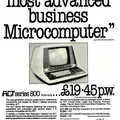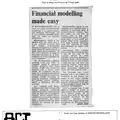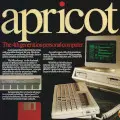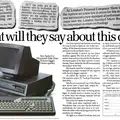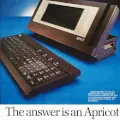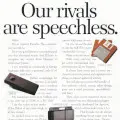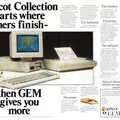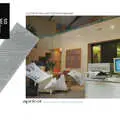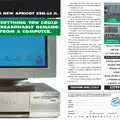
ACT/Apricot Advert - February 1980
From Personal Computer World
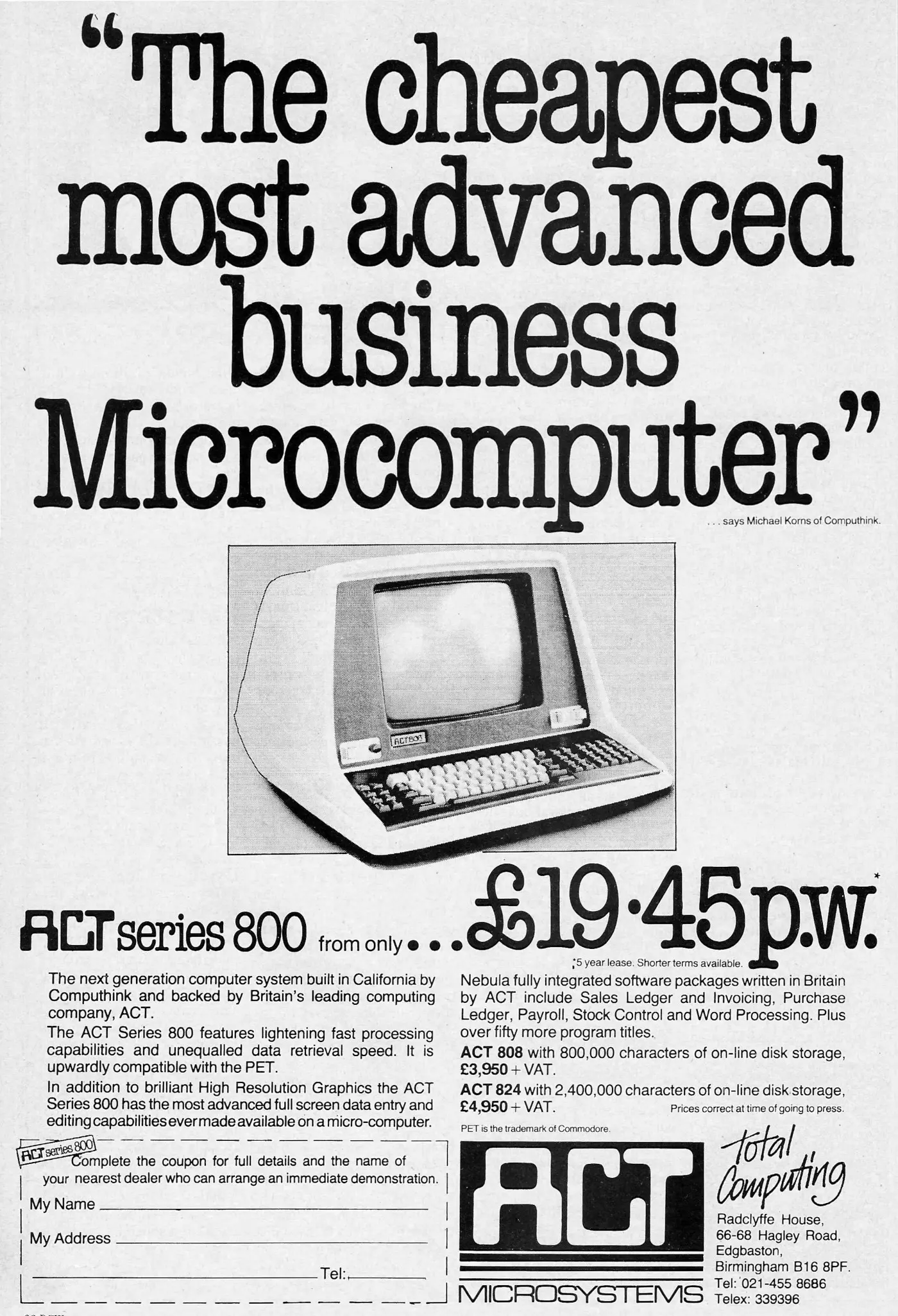
The cheapest most advanced business Microcomputer
Marketed as the ACT Series 800 and built by Computhink of California, where it was known as the Minimax, the ACT 800 was ACT's first micro and came some 15 years after the company's 1965 founding by Roger Foster as a mainframe accounting bureau[1].
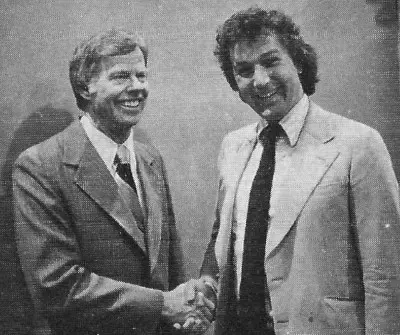
Julian Allason (right) at CES in Las Vegas, 1980It had been sourced and imported by Julian Allason of PETSoft - a company acquired by ACT sometime around the summer of 1979[2] - and was chosen for its user-friendliness, minicomputer-like features and graphics which included the ability to do non-standard PETSCII characters.
For this reason it was considered as a "relatively easy" upgrade from the Commodore PET, which at the time was the UK's most popular micro[3].
The BASIC was similar, it could do the same graphics and in theory only Peeks and Pokes needed to be changed - something which could be required even when moving from one PET model to another.
However, it was not entirely straightforward as the 800's screen was not memory-mapped like the PET's was, and putting something on the screen required three pokes per character - one each for x and y coordinate and one for the thing actually being displayed.
Thomas Turnbull, who worked with Allason to convert PET software for the 800 concluded that this "mostly meant that PET games [written in machine code] did not transfer very well but all BASIC-written ones did"[4].
Allason found fame in the 1970s as a photographer and was also well-known in Chelsea for driving around in his "psychedelic mini".
He founded MicroComputer Printout in 1979 as a response to a shortage of software for Commodore's PET, with the magazine becoming a forum through which readers could exchange their own software.
This was followed with the creation of PETSoft, which was one of the UK's first domestic software companies[5].
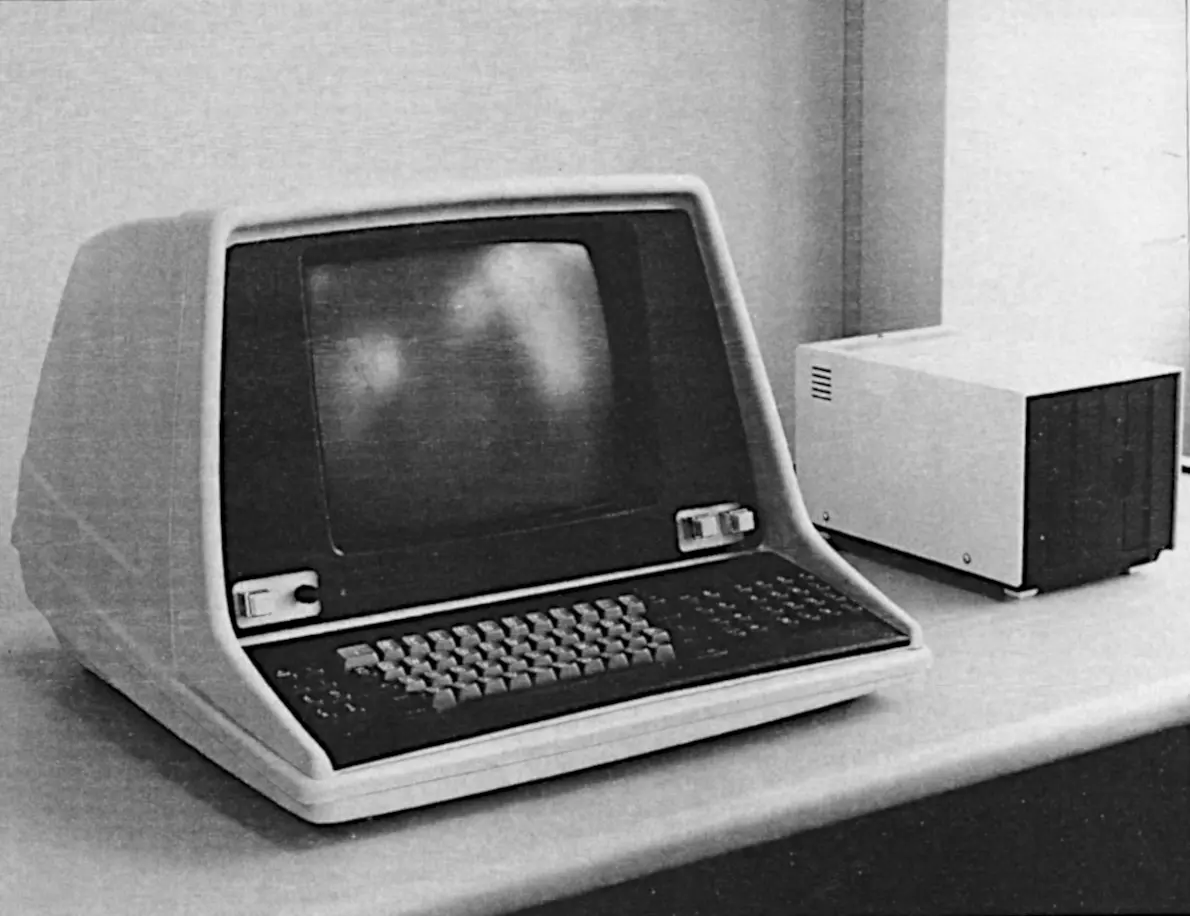
The ACT System 800 with its 5¼" disk drive, from Personal Computer World, February 1980
The 6502-based entry-level 808 came with 800K floppy storage and retailed for £4,300 (about £28,100 in 2026), whilst its bigger brother 824 with a total of 2.4MB went for £5,400 (£35,300).
Despite David Tebbutt of Personal Computer World concluding in his February 1980 review that "It's a well-made easy to use product. I cannot see how this system can fail"[6], the 800 sold modestly with Practical Computing reporting in a 1984 interview with ACT founder and managing director Roger Foster that its name was quite apt because it only sold around 800 units[7].
However it paved the way for the much more significant ACT Sirius 1 - a 16-bit machine designed by 6502 and PET legend Chuck Peddle and built by Victor in the US, where it was known as the Victor 9000 - which thanks to its better specification, extensive software and better value, had a good run against the IBM 5150 PC and for a while outsold it in Europe.
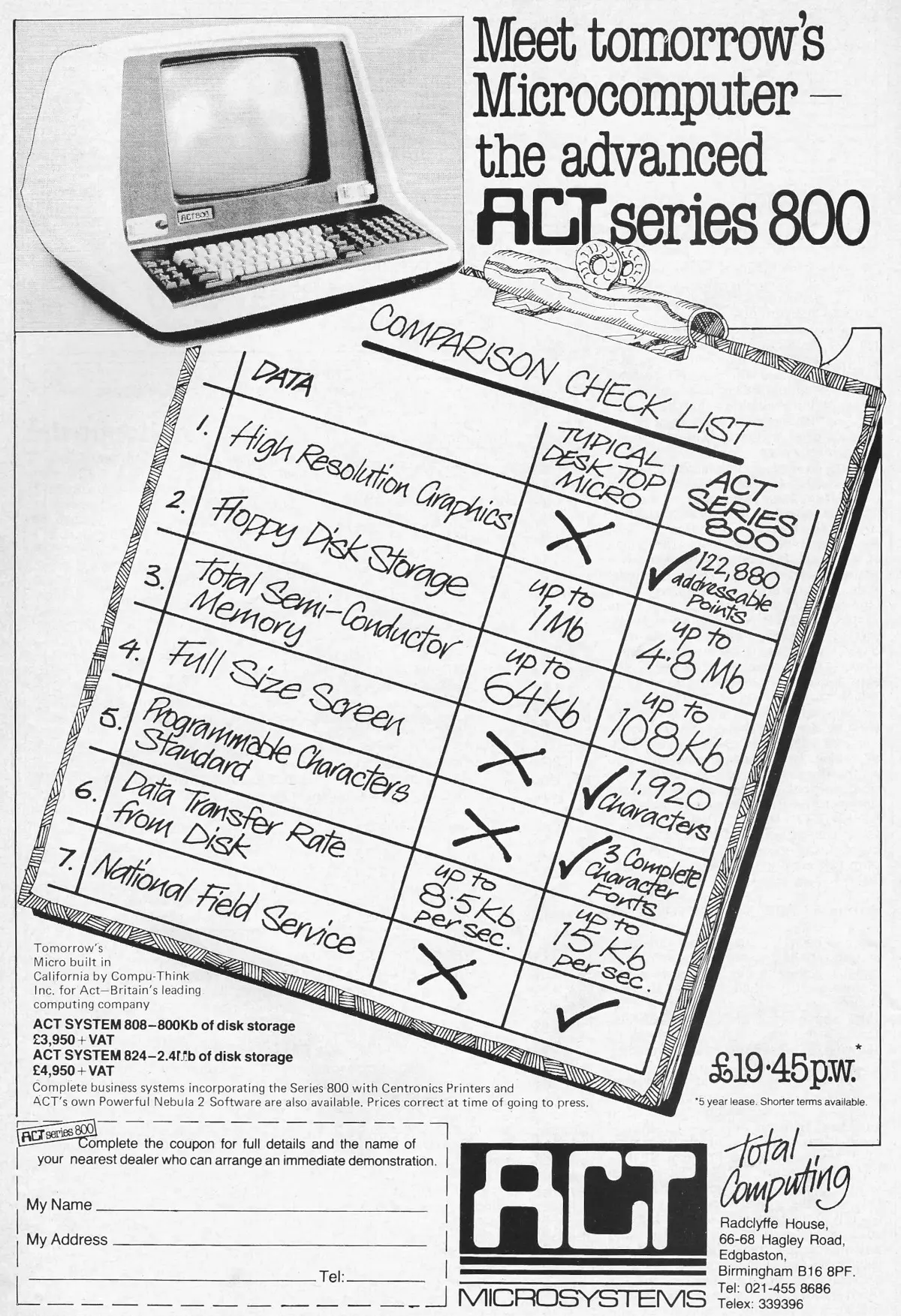
Another ACT advert for its 800 machine, with an obligatory comparison table. The ad also acknowledges the company's history as a time-share rental bureau, as the machine is also available to rent at £19.45 a week - about £560 a month in 2023
ACT also seemed to some commentators to herald the "era of professional programs" when its PETSoft software subsidiary, by then known as PETACT, launched its first business package in October 1979.
"Complete with detailed documentation" and requiring dealer attendance on a one-day course before it could be sold, the software was considered high quality and good value, retailing for around £175 - about £1,300 in 2026[8].
Date created: 11 January 2015
Last updated: 23 January 2026
Hint: use left and right cursor keys to navigate between adverts.
Sources
Text and otherwise-uncredited photos © nosher.net 2026. Dollar/GBP conversions, where used, assume $1.50 to £1. "Now" prices are calculated dynamically using average RPI per year.
